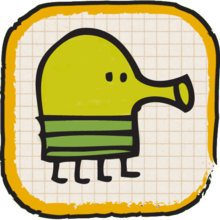
Sonic Jump is a 2005 vertical platform game developed by AirPlay and Sonic Team, and published by Sega for the digital distribution service Sonic Cafe, initially only available in Japan for mobile phones before being ported to iOS and Android and released in other regions in 2007. Unlike other games in the series, Sonic Jump doesn't involve running from left to right, but instead, Sonic automatically jumps up the screen, with the player needing to tilt the phone to move him from left to right. The original game's graphical style is based on the Sonic Advance series, which had ended shortly before Jump's release.
A mobile operating system is an operating system used for smartphones, tablets, smartwatches, smartglasses, or other non-laptop personal mobile computing devices. While computers such as typical/mobile laptops are "mobile", the operating systems used on them are generally not considered mobile, as they were originally designed for desktop computers that historically did not have or need specific mobile features. This line distinguishing mobile and other forms has become blurred in recent years, due to the fact that newer devices have become smaller and more mobile unlike hardware of the past. Key notabilities blurring this line are the introduction of tablet computers, light laptops, and the hybridization of the two in 2-in-1 PCs.
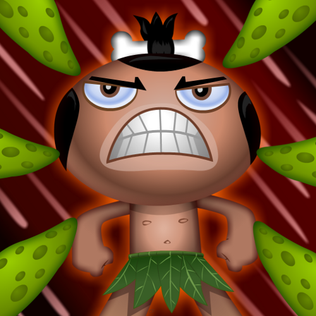
Pocket God is a simulation game developed by Bolt Creative, in which the player manipulates an island and its inhabitants. It was released for the iPad, iPhone, and iPod Touch on January 9, 2009, and released for Verizon Wireless on September 1, 2010, Android on December 1, 2010, and Windows Phone on December 4, 2010. The Facebook version was released December 23, 2010.

Flight Control is a time management video game for iOS, Wii, Nintendo DS, Android, and Windows Phone 7 developed by Firemint and first released for iOS on March 5, 2009. The app was a number one bestseller on the App Store in 19 countries simultaneously on April 6, 2009 and has sold over 3.8 million copies. The development and publishing of Flight Control on non-Apple mobile phones is being handled by Namco under license.

Edge is a puzzle-platform game developed by Mobigame for PC and iOS devices. The objective is to guide a rolling cube through maze-like levels and reach the goal. Originally released on the App Store in December 2008, it has been removed and re-added to the store multiple times due to a trademark dispute with Tim Langdell of Edge Games, concerning the use of the word "Edge" in the title. This had caused the game to be briefly released as Edge by Mobigame and Edgy, before ultimately returning to the App Store under its original name in January 2010. The game was released on multiple platforms including mobile phones, PlayStation Portable, Windows, Mac OS X, Linux, Android, Wii U, and Nintendo 3DS. It was released on Steam in August 2011 by publisher Two Tribes.

Backflip Studios was a mobile game developer and publisher based in Boulder, Colorado, United States. It was founded by Julian Farrior, Dale Thoms and Tom Blind in April 2009. In August 2009, it was announced that the company had raised US$145,000 in funding to continue developing for the iPhone OS. Backflip Studios was best known for their free mobile game Paper Toss, which has been downloaded over 50 million times. They are also widely known for Dragonvale, with over 10 million downloads. In 2013, Backflip Studios sold a 70% stake in the company to Hasbro for $112 million in cash.

Asphalt 5 is a 2009 racing video game developed and published by Gameloft and is the fifth major game of Asphalt series. It was released for iOS on November 2, 2009, for webOS on January 8, 2010, for Android on March 18, for Symbian^3 and Bada on December 22, and for Windows Phone 7 on July 16, 2012.
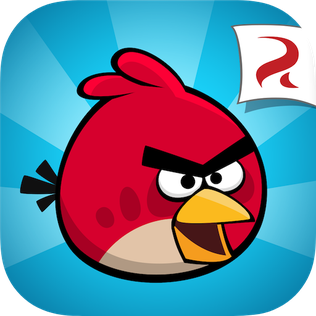
Angry Birds was a 2009 physics-based casual puzzle video game developed by Finnish video game developer Rovio Entertainment. Inspired primarily by a sketch of stylized wingless birds, the game was first released for iOS and Maemo devices starting in December 2009. By October 2010, 12 million copies of the game had been purchased from the iOS App Store and Ovi, which prompted the developer to design versions for other touchscreen-based smartphones, most notably Android, Symbian, Windows Phone, and BlackBerry 10 devices. The series has since expanded to include titles for dedicated video game consoles and PCs. A sequel, Angry Birds 2, was released in July 2015 for iOS and Android. Around April 2019, the original game was removed from the App Store. A paid recreation of the game's content from 2012 was released as Rovio Classics: Angry Birds on March 31, 2022, but later on, Rovio mentioned that they were removing it from the Google Play Store on February 23, 2023, and retitling it as Red's First Flight on the iOS App Store.
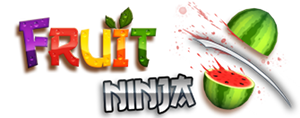
Fruit Ninja is a video game developed by Halfbrick originally released on August 12, 2010. In the game, the player must slice fruit that is thrown into the air by swiping the device's touch screen with their finger(s) or the player's arms and hands, and must not slice bombs. It features multiple gameplay modes, leaderboards and multiplayer.
Asphalt is a series of racing video games developed and published by Gameloft, Clickteam and Microsoft. Games in the series typically focus on fast-paced arcade racing set in various locales throughout the world, tasking players to complete races while evading the local law enforcement in police pursuits.

Temple Run is an endless runner video game developed and published by Imangi Studios. The player controls an explorer who has obtained an ancient relic and runs from demonic monkey-like creatures chasing him. The game was initially released for iOS devices on August 4, 2011, and later ported to Android systems and Windows Phone 8.
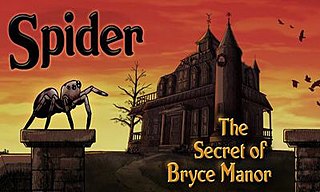
Spider: The Secret of Bryce Manor is a 2009 side-scrolling action-puzzle video game for iOS and Android, developed and published by Tiger Style. The player takes control of a spider who comes to reside in to the deserted Bryce Manor and must spin webs to trap various types of insects, whilst simultaneously ascertaining what happened to the former residents of the manor. The game received critical acclaim and won multiple awards. Originally released in August, a Director's Cut update replaced the original version on the App Store in December. The update added ten levels, twenty-four Game Center achievements, new music, more story elements and an insect. A year after the game's initial release, a HD version was released for the iPad. In 2013, the game was also released for Android. A sequel, Spider: Rite of the Shrouded Moon, was released in August 2015 for iOS, Android, Windows, Mac and Linux.

Infinite Dreams Inc. or Infinite Dreams is a game development studio in Gliwice, Poland. Founded in 1997, the company develops games for a range of digital platforms such as iOS, Android, macOS, Windows Phone and Symbian. The studio is best known for its Sky Force series. Games developed by Infinite Dreams have been downloaded over 25,000,000 times worldwide.
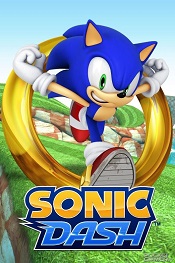
Sonic Dash is a 2013 endless runner mobile game developed by Hardlight and published by Japanese game studio Sega. It is Hardlight's second Sonic the Hedgehog game, the first being 2012's Sonic Jump. The game was released in March 2013 for iOS, November 2013 for Android, and December 2014 for Windows Phone and Windows, along with an arcade release in November 2015 as Sonic Dash Extreme. It was initially released as a paid application, but was made free-to-play a month after its iOS release.

Gravity Guy is a 2010 side-scrolling endless runner action arcade video game developed and published by Miniclip.

Badland is a mobile video game developed by Frogmind Games and first released on the iOS and Android platforms in 2013. It was released on Windows Phone 8 in June 2014. There is also a Game of the Year Edition that was released in May 2015 for PlayStation 3, PlayStation 4, PlayStation Vita, Xbox One, Wii U and Steam for Linux, Microsoft Windows and OS X, and in August 2021 for Nintendo Switch.

Alto's Adventure is a 2015 endless runner snowboarding video game developed by Team Alto and published by Snowman (iOS) and Noodlecake Studios (Android). The player-character automatically moves to the right of the screen through procedurally generated landscapes. The player taps the screen to jump and perform tricks (backflips), and works towards goals, competitive high scores, and upgrades. Snowman, a Toronto-based, three-person indie development team, previously worked on productivity apps before Alto's Adventure. The game was made to emulate the ethereal atmosphere of snowboarding, and was inspired by Ski Safari (2012), Tiny Wings (2012), Jetpack Joyride (2011), Journey (2012), Monument Valley (2014), Tony Hawk's Pro Skater 2 (2000), and Windosill (2009).
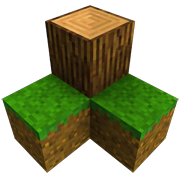
Survivalcraft is a 2011 open sandbox video game developed by Marcin Igor Kalicinski under the brand Candy Rufus Games. Following early test versions, it was released on 16 November 2011 for the Windows Phone, and is also available for Android, iOS, and Microsoft Windows. The game is set on a deserted island in an open world, where the player collects resources and items that can be made into survival tools. The game has six different game modes: Survival, Challenging, Cruel, Harmless, Adventure, and Creative. The first four involve the player gathering necessary resources to stay alive. The Creative mode gives the player unlimited items and health, and the Adventure mode is used for quest and parkour maps.
Endless runner or infinite runner is a subgenre of platform game in which the player character runs for an infinite amount of time while avoiding obstacles. The player's objective is to reach a high score by surviving for as long as possible. The method by which the game level or environment appears to continuously spawn before the player is an example of procedural generation. The genre exploded on mobile platforms following the success of Doodle Jump, Canabalt, and Temple Run being other popular examples. Its popularity is attributed to its simple gameplay that works well on touchscreen devices.
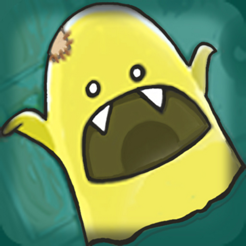
The Creeps! is a 2008 tower defense video game developed by Super Squawk Software for iOS and Android devices. The player must prevent monsters from reaching a child's bed by placing towers that destroy them. The Creeps! was followed by sequels The Creeps! Holiday Edition and The Creeps! 2.
